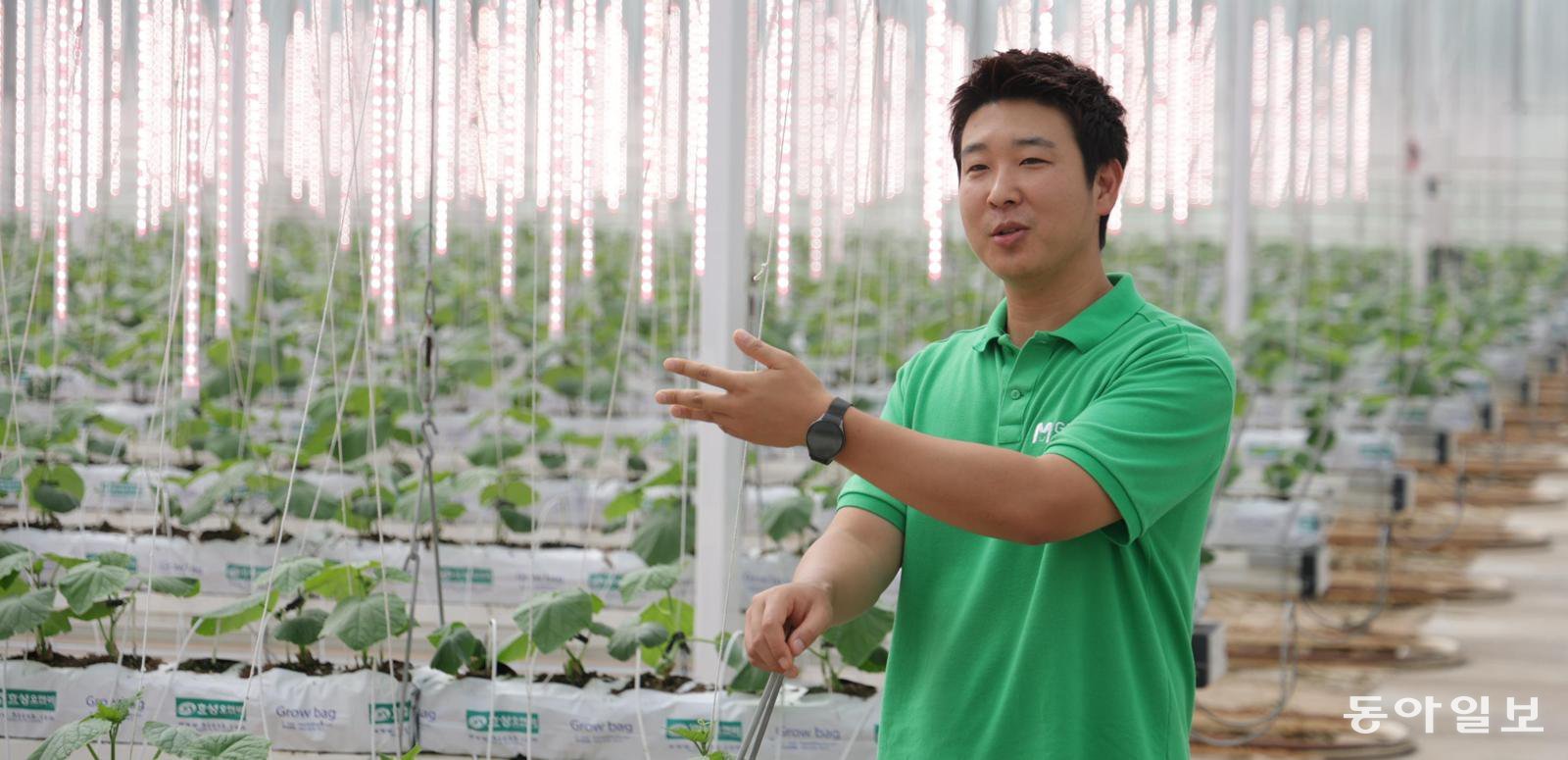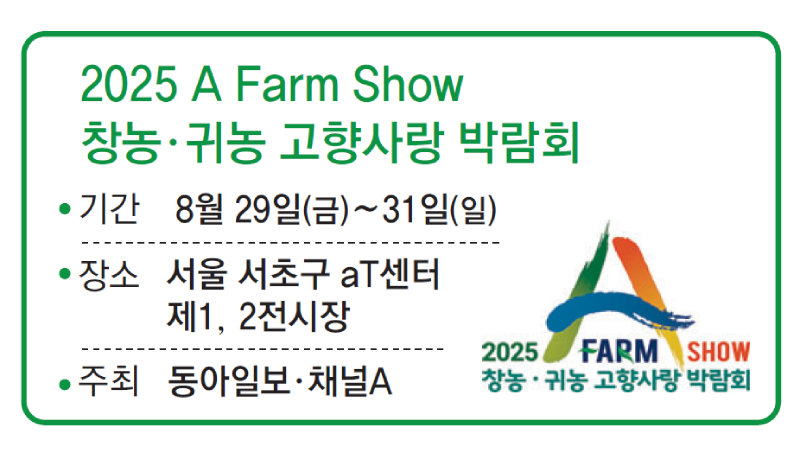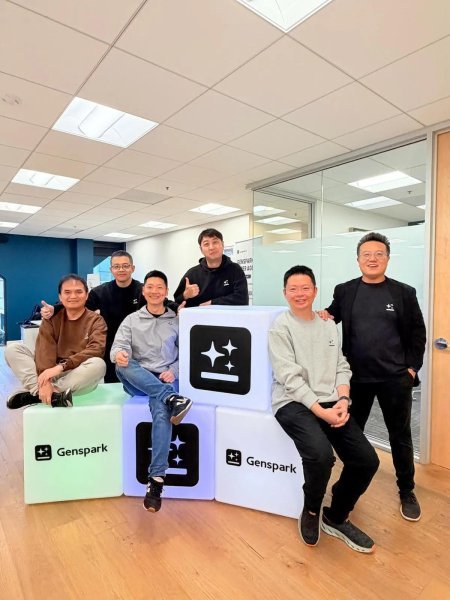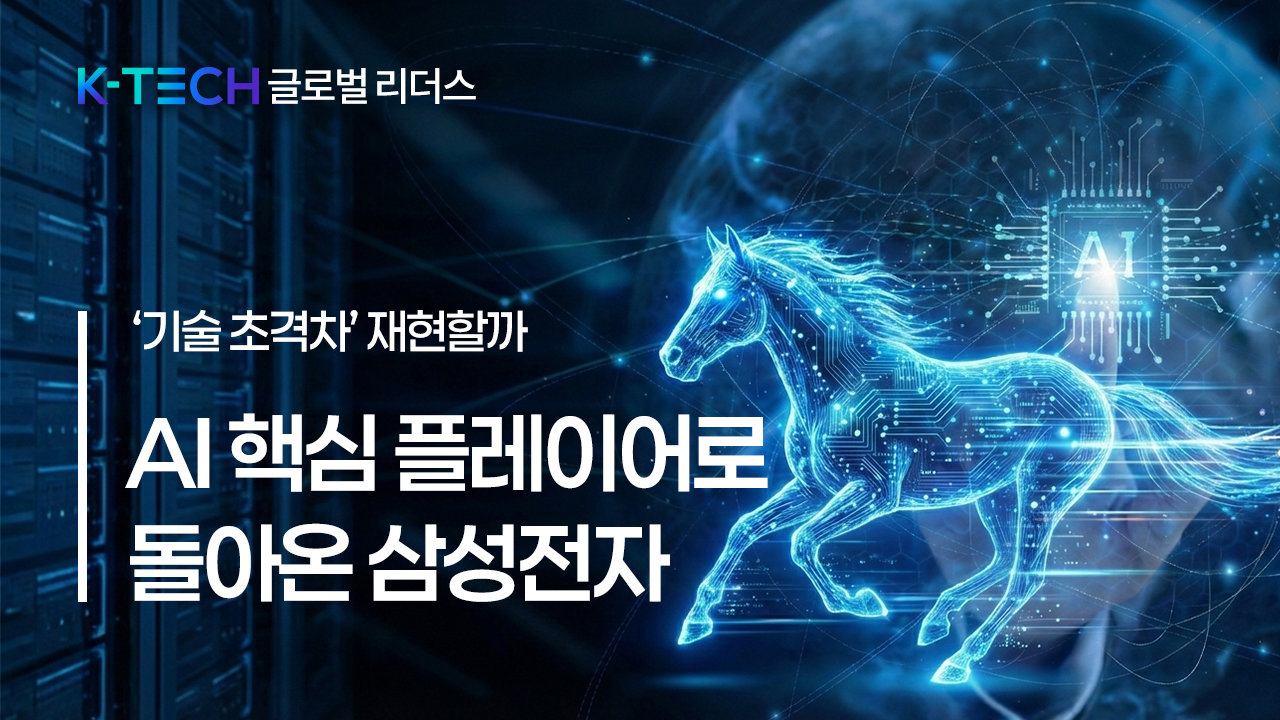
AgTech
AI Farming Attracts Japanese Grads, Corporate Workers
Dong-A Ilbo |
Updated 2025.08.22
Cool offices, farming via PC and phone... Productivity up 23%, labor down 10%
Billions in sales easily achieved... Local governments actively support
"Perception of agriculture changed," youth moving to rural areas
Billions in sales easily achieved... Local governments actively support
"Perception of agriculture changed," youth moving to rural areas
var WiderPlanetAdRendererVar = {
type : "script",
passback : '/images/common/pc_view_banner.jpg',
category : "pc_view_banner",
width : "468",
height : "60",
zoneid : "30713",
targetid : "kb_pc_view_ad"
};
Gyeongbuk Province is promoting the construction of a ‘Smart Farm Cluster and Future Agriculture Theme Park’ covering 350,000㎡ (approximately 100,000 pyeong) as part of the ‘Economic Industry Re-creation 2 Trillion Project.’ The background for local governments’ active expansion of smart farms lies in concerns over population decline and rural extinction. The strategy is to change the labor-intensive agricultural methods to increase youth inflow, thereby boosting productivity and revitalizing the regional economy.
● Japanese-educated, Seoul corporate employees also ‘smart return to farming’
Kim Ji-woon (27), who settled in Nonsan, Chungnam five years ago after living in Gwangmyeong-si, Gyeonggi, is also one of the urban youths who settled in rural areas after seeing smart farms. Within two years of operating a smart farm, Kim achieved sales of KRW 500 million and a net profit of over KRW 380 million. He said, “I thought agriculture was a blue ocean during middle school, so I entered an agricultural university, and thanks to the experience learned from mentor farms and the support from the government and Chungnam Province, I could operate a 1,000㎡ (approximately 3,000 pyeong) smart farm.”
Han Kyung-hoon (35), who cultivates salad vegetables in Anseong-myeon, Muju-gun, Jeonbuk, is also a representative ‘smart returnee to farming.’ In 2022, he invested KRW 6.5 billion to build a glass greenhouse the size of two soccer fields (10,986㎡). The operation rate, which was 20-30% in the first year, has increased annually, and now he has an all-year production system, supplying all harvested vegetables to Shinsegae Food. Last year’s sales reached KRW 1.7 billion. After graduating from Waseda University in Japan and returning to Korea, he prepared for the future by participating in the Youth Smart Farm Incubation Project.
Cho Sang-beom (35) from Yongam-myeon, Seongju-gun, Gyeongbuk, returned to his hometown in 2017 after working at a large corporation in Seoul and is now operating a melon smart farm. Melons are sensitive to temperature changes, requiring daily covering and uncovering of thermal blankets. However, he controls the temperature with a single finger through an AI management system. Cameras and AI analysis installed throughout the house inform the optimal harvest time. Cho said, “What used to take 4 hours before introducing the smart farm now takes just 5 minutes,” adding, “Production has increased by 15%, and I enjoy a work-life balance comparable to city dwellers.” He added, “Returning, I found that the living infrastructure in rural areas has improved significantly compared to before, creating an environment where the younger generation can take on challenges.”
● Japanese-educated, Seoul corporate employees also ‘smart return to farming’
Kim Ji-woon (27), who settled in Nonsan, Chungnam five years ago after living in Gwangmyeong-si, Gyeonggi, is also one of the urban youths who settled in rural areas after seeing smart farms. Within two years of operating a smart farm, Kim achieved sales of KRW 500 million and a net profit of over KRW 380 million. He said, “I thought agriculture was a blue ocean during middle school, so I entered an agricultural university, and thanks to the experience learned from mentor farms and the support from the government and Chungnam Province, I could operate a 1,000㎡ (approximately 3,000 pyeong) smart farm.”
Han Kyung-hoon (35), who cultivates salad vegetables in Anseong-myeon, Muju-gun, Jeonbuk, is also a representative ‘smart returnee to farming.’ In 2022, he invested KRW 6.5 billion to build a glass greenhouse the size of two soccer fields (10,986㎡). The operation rate, which was 20-30% in the first year, has increased annually, and now he has an all-year production system, supplying all harvested vegetables to Shinsegae Food. Last year’s sales reached KRW 1.7 billion. After graduating from Waseda University in Japan and returning to Korea, he prepared for the future by participating in the Youth Smart Farm Incubation Project.
Cho Sang-beom (35) from Yongam-myeon, Seongju-gun, Gyeongbuk, returned to his hometown in 2017 after working at a large corporation in Seoul and is now operating a melon smart farm. Melons are sensitive to temperature changes, requiring daily covering and uncovering of thermal blankets. However, he controls the temperature with a single finger through an AI management system. Cameras and AI analysis installed throughout the house inform the optimal harvest time. Cho said, “What used to take 4 hours before introducing the smart farm now takes just 5 minutes,” adding, “Production has increased by 15%, and I enjoy a work-life balance comparable to city dwellers.” He added, “Returning, I found that the living infrastructure in rural areas has improved significantly compared to before, creating an environment where the younger generation can take on challenges.”
AI-translated with ChatGPT. Provided as is; original Korean text prevails.
ⓒ dongA.com. All rights reserved. Reproduction, redistribution, or use for AI training prohibited.
Popular News












